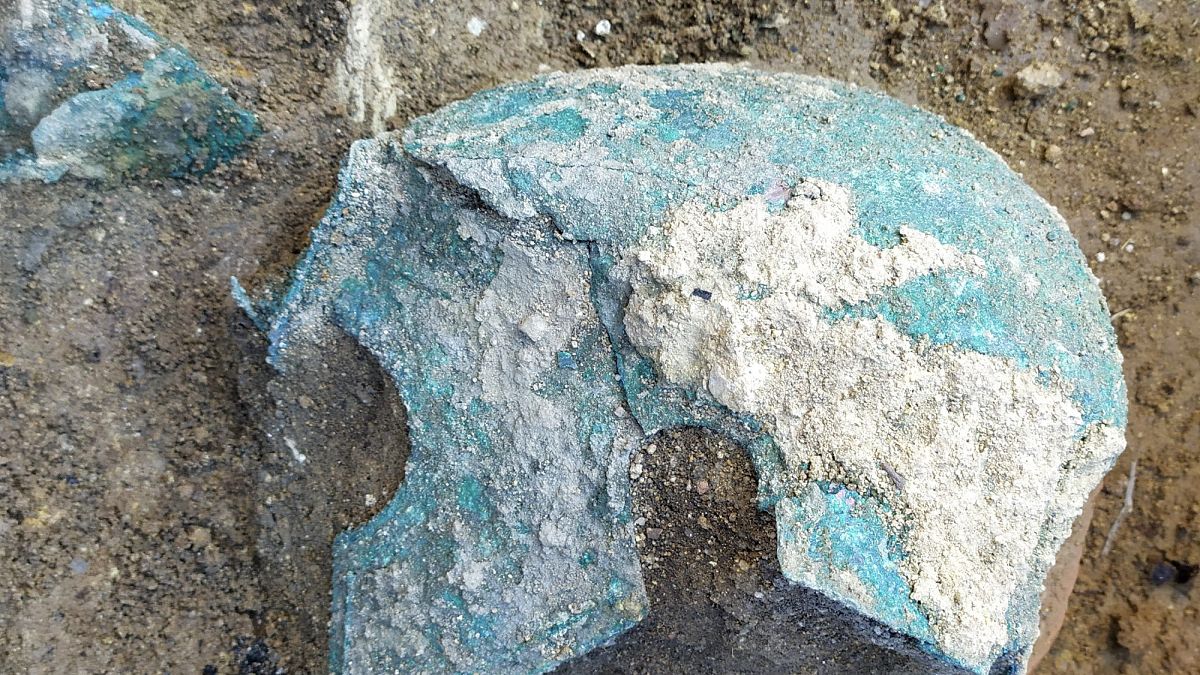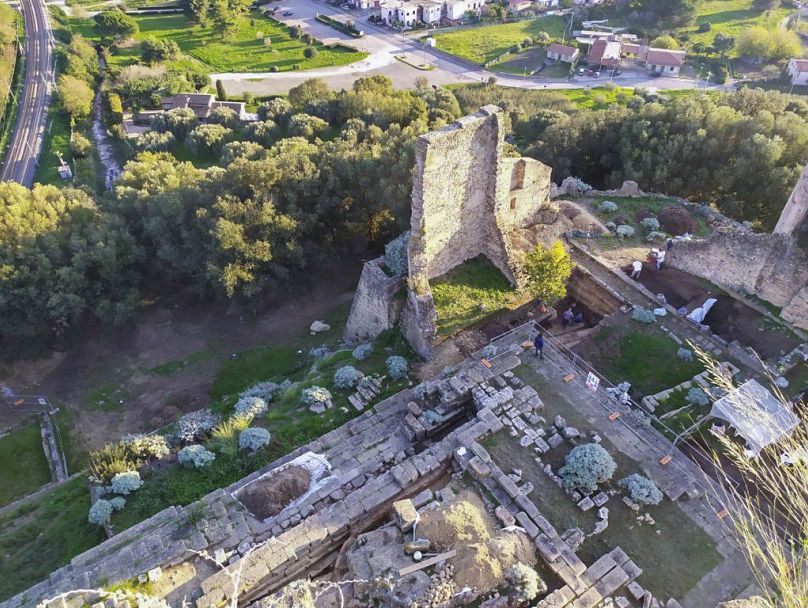Southern Italy used to be a Greek colony and recent archaeological excavation could explain the religious practices of soldiers praying to Athena.
Archaeologists in southern Italy have discovered new objects at a site that might have been a forerunner of a temple dedicated to the goddess Athena.
Ancient warrior helmets, vases inscribed with the word 'sacred' in Greek and the ruins of a painted brick wall were dug up by the team, along with potential weapon fragments.
The remains were found in Velia, 40 kilometres southeast of Paestum, a much-visited site of ancient Greek temples.
Italian Culture Minister Dario Franceschini said the remains dug up at the popular tourist site of were found on what had been an acropolis of one of Magna Graecia's most important cities.
What is the significance of Velia?
Velia is famed for being the home of an ancient Greek school of philosophy, including philosophers Parmenides and Zeno.
It was part of Magna Graecia, the area of southern Italy colonised by Greek city-states. The settlement at Velia occupied an upper part, or acropolis, of the area as well as hillsides, and was surrounded by a wall. The city's ancient name was Elea.
State Museums Director Massimo Osanna said the area explored at Velia probably contained relics of offerings made to Athena, the mythological Greek goddess of war and wisdom, after a key naval battle in the nearby Tyrrhenian Sea.
Osanna formerly directed excavations at Pompeii, Italy's most celebrated excavated site,
In the 6th-century BC, the battle of Alalia off the coast of Corsica saw Greek forces victorious over Etruscan forces and their Carthaginian allies.
The founding of the city dates to about 540 BC by colonists from Asia Minor.
Franceschini said the discoveries yielded by the Velia excavation underscored the importance of investing in archaeological research to reveal "important pieces of the history of the Mediterranean."




